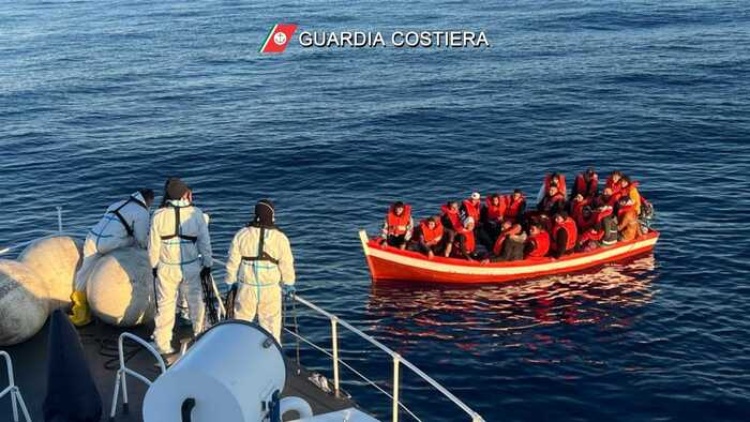The state of emergency, backed by initial funding of five million euros, will last for six months, according to sources outside the cabinet meeting that proclaimed it.
The decision follows a meeting on Monday between Interior Minister Matteo Piantedosi and Musumeci.
"I spoke with my Interior (Ministry) colleague Piantedosi yesterday, and there is now a condition of absolute emergency,” Musumeci said on Radio Anch'io on Tuesday.
"It is a problem that is destined to remain with us for at least the next ten years, a condition that puts state infrastructure under strain and that is inevitable because we are talking about human beings who have rights and toward whom we must take a responsible approach," he explained.
Musumeci is also the former governor of Sicily, where many migrants and refugees have been arriving by sea.
"The state of emergency should facilitate procedures," he continued.
"We are talking about a phenomenon never seen in the past. The islands alone cannot deal with this state of emergency," he concluded.
In recent weeks Italy has seen a significant rise in the number of migrants and refugees arriving on its southern shores from north Africa, with more than 3000 people landing over the last three days alone.
Some 38 people have also been reported dead and a further 18 missing in two shipwrecks off the coast of Tunisia.
"We willingly endorsed the request of Interior Minister Matteo Piantedosi, well aware of the gravity of a phenomenon that has registered an increase of 300 per cent,” Musumeci said after the announcement of the state of emergency.
"Let us be clear, it won't solve the problem – solution is linked solely to an awareness and responsible intervention by the European Union."
The state of emergency will allow for prompt responses, government sources said.
The declaration makes it possible to ensure more effective and timely responses in terms of the management of migrants and their accommodation on national territory.
It will be possible to implement faster procedures and actions to offer migrants reception solutions in a short time with adequate standards. The Civil Protection and the Italian Red Cross will also be involved with their experience and equipment.
At the same time, sources emphasised, the structures aimed at the repatriation of those not entitled to stay in Italy (CPRs) will be increased and strengthened, enhancing identification and expulsion activities.
The government, in office since October, has pledged to curb mass immigration but about 31,300 migrants have arrived in Italy so far in 2023, interior ministry data shows, up from about 7900 in the same period last year.
On Monday, the coastguard led rescue operations involving two boats carrying a total of 1200 people, with charity groups also joining efforts to save lives at sea.
Following a deadly shipwreck off the southern Italian region of Calabria in late February, Prime Minister Giorgia Meloni urged the EU to do more to halt illegal immigration, as she toughened jail terms for human smugglers.
"It is right that the interior ministry and the institutions should have special powers to tackle and manage a complex phenomenon which is putting a strain on some southern regions," Calabria's governor Roberto Occhiuto said in a statement.
ANSA











